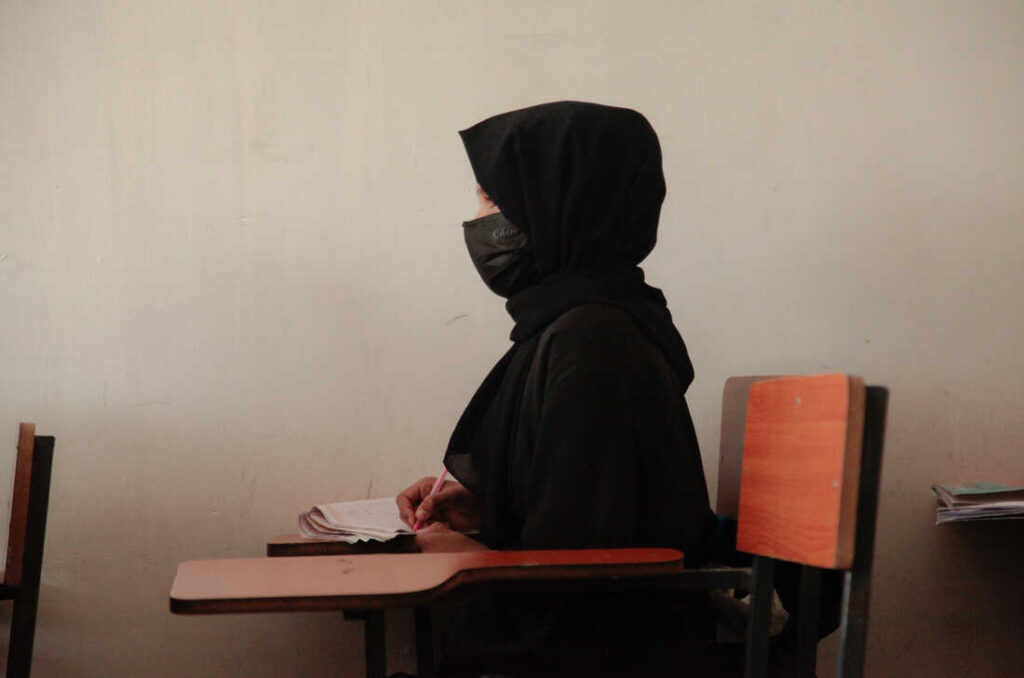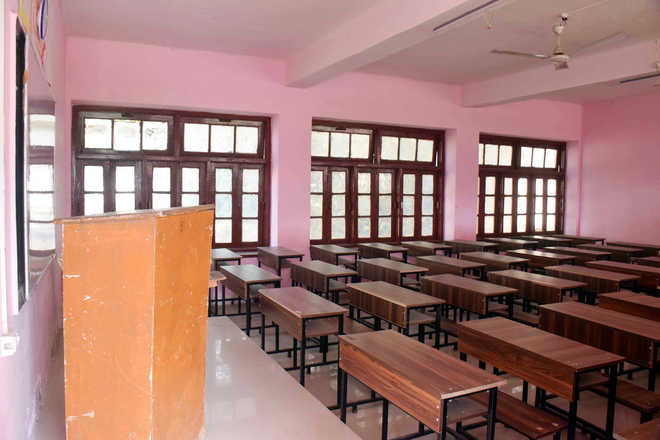Kabul (Kubha News) – Female students above the sixth grade have been counting the 900 days until schools reopen for them, but with the onset of spring and the new academic year in the cold regions of Afghanistan, school doors have not opened for them.
Some female students in Kabul, speaking to Kubha News, say they feel burdened by their families because staying out of school has left them illiterate and without hope for a good future.
Zarmina, a student at the Sayed Noor Mohammad Shah Girls’ High School in Kart-e Now Kabul, told Kubha News that even her family has become unable to support her due to the delayed announcement of school reopening: “I completed the sixth grade a year ago, and after that, I was not allowed to go to school. My father got me a home tutor this year, I studied seventh-grade science books at home for six months, but my father retired four months ago, and for three months, we haven’t had the money for a home tutor, and I’ve been deprived of studying at home. I hoped they would allow me to go to the seventh grade this year, but with girls’ schools closed, our hope and wish for a good future have turned to dust.”

Zarmina’s family says that with girls’ schools closed, they feel injustice between their daughters and sons, and seeing their daughters’ suffering and anxiety, they have faced psychological problems.
Noor Agha, Zarmineh’s father, who worked in the Ministry of Finance and has recently retired, suffers from the uncertain future of his two daughters, but unlike the past, he cannot even financially support them: “In the past, it was good when schools were government-run and free, our children would go and we wouldn’t face economic problems, now that they have closed schools for girls above the sixth grade, and we don’t have the financial means to support a home tutor, in addition to our daughters becoming illiterate, their psychological problems from worrying about the future have become a major headache for us. Because our children are losing both the blessing of literacy and their health.”
Not only schoolgirls who have been affected by the closure of schools, facing psychological problems and worrying about an uncertain future.
Parwin Formoli, a teacher at the Aisha Girls’ School in Kabul, told Kubha News that there is no excuse for keeping schools closed for girls above the sixth grade, as the environment of these schools is in line with Afghan culture and Islamic conditions: “All conditions are in place for girls to return to school. Even before the Islamic Imirate came, all our teachers were women from the sixth to the twelfth grade, and our administrative staff, except for male clerks, were men. Although our salary is paid with a slight delay, the continued ban on girls going to school has caused us concern, and despite the difficulties we have faced, sitting at home is also difficult for us.”

More than 900 days have passed since schools were closed for girls above the sixth grade, but despite the repeated promises of the Taliban to facilitate the reopening of these schools, there has been no progress in what their government considers to create a safe Islamic environment in girls’ schools.
Alongside serious criticism from the international community regarding the closure of schools, ordinary people in the country and prominent religious scholars in Afghanistan also consider the Taliban government’s justifications in this regard unwarranted and subject to criticism.
